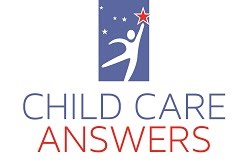My name is Mindy Bennett and I am the Director of Programs for Child Care Answers the Child Care Resource and Referral agency that services Central Indiana. We are
a free service that helps parents locate and evaluate child care options for their children. In January alone we helped over 800 families with their child care search. We have a database of over 1300 child care providers that we provide training and mentoring opportunities to.
I want to respond to the reports that a Toddler drowned in a baptismal pool at a local Unlicensed Child Care Registered Ministry.
This is a horrible tragedy that could have been prevented!
The staff at Child Care Answers works daily with child care providers training them and providing on site technical assistance to ensure that children are kept safe while their parents work or attend school. We have an Infant Toddler Specialists that is a
free resource to child care providers who can provide specific training on issues related to infants and toddlers.
In Indiana
Child Care Ministries are not required by law to be licensed, however we do have some who have volunteered to meet additional health and safety standards. Praise and Fellowship Assembly of God Church, the child care provider in this case, was an Unlicensed Registered Child Care Ministry. Indiana’s Unlicensed Registered Child Care Ministries are not required to meet staff to child ratios nor are they regulated to meet specific group size requirements. In addition, Unlicensed Registered Child Care Ministries do not have supervision requirements that they must meet. For an easy to read chart about the regulation requirements for the different types of child care in Indiana please visit this link:
http://www.childcareanswers.com/PDF_Docs/FacilityRegulations.pdf
Several bills were introduced this legislative session and the last session that would have addressed some of the differences in regulations between the different types of child care in Indiana but they did not make it out of committee. To read more about the legislative efforts for change please visit Child Care Answers’ Legislative Education Center
http://advocacycca.wordpress.com/ and the Indiana’s general assembly’s Interim Committee on Child Care’s page
http://www.in.gov/legislative/interim/committee/care.html
I know that this incident has left families scared and confused about leaving their children in child care.
Child Care Answers is here to help families with our free services during this troubled time. We have a team of specialists that can help families with their specific questions about child care and how to tell if a program is providing safe, quality care. We are only a phone call away; you can reach us at 317-631-4643. Parents can also find valuable tools on our website at
http://www.childcareanswers.com/.












